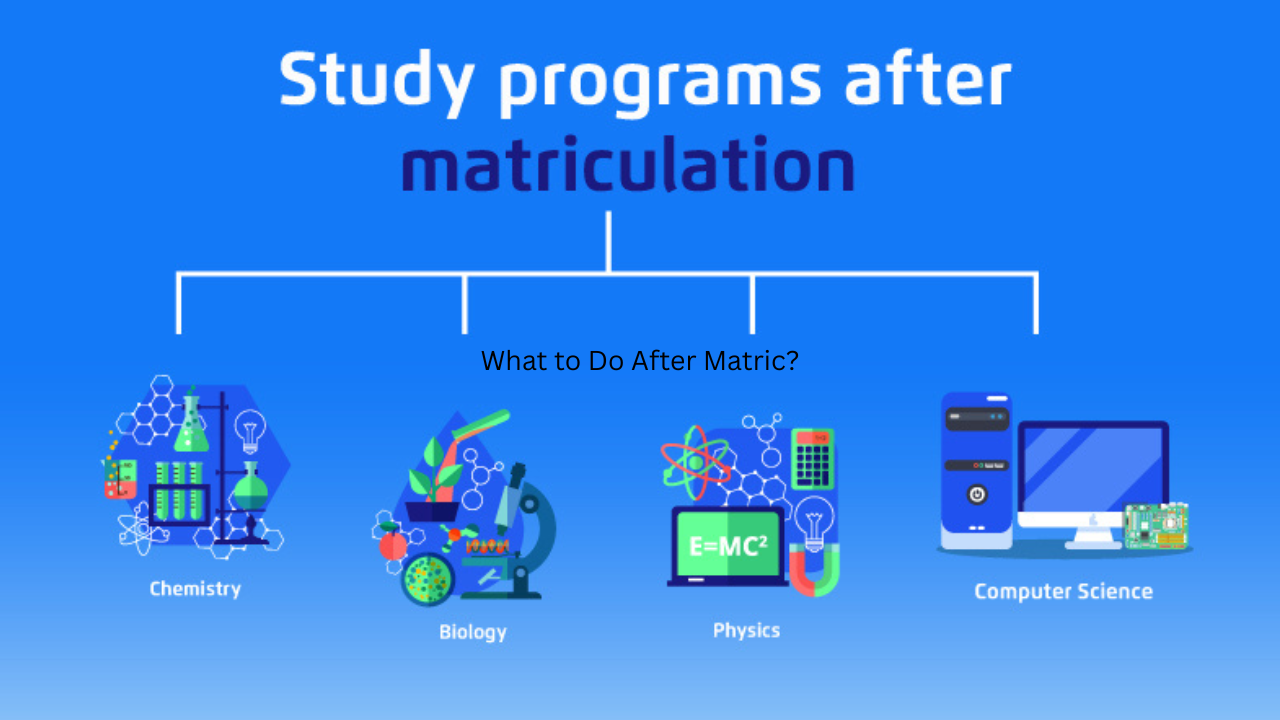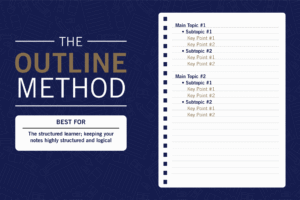
What to Do After Matric? Top Study & Career Options for Students
Introduction:
You’ve completed your Matric exams — congratulations! But now comes a big question: What’s next? The decision you make after Matric can shape your future, and it’s important to take time to carefully consider your options. Whether you’re planning to continue with further studies or explore other paths, this guide will help you understand the most popular and practical study and career options available to you.
Popular Study Options After Matric
1. FSC (Pre-Medical & Pre-Engineering)
Who should choose it?
FSC is one of the most common paths after Matric, especially for students with a strong interest in subjects like Biology, Physics, Chemistry, or Mathematics.
- Pre-Medical (FSC): Ideal for those who aspire to become doctors, pharmacists, dentists, or biotechnologists.
- Pre-Engineering (FSC): Perfect for students who are passionate about technology, engineering, or architecture.
Why choose FSC?
- Great for students with high academic potential in science subjects.
- It opens doors to various careers in medicine, engineering, and research fields.
2. ICS (Intermediate of Computer Science)
Who should choose it?
ICS is the go-to choice for students interested in computer science, information technology, and related fields.
Why choose ICS?
- Ideal for students who love programming, computers, and technology.
- A stepping stone to careers in software development, web development, and IT management.
ICS subjects typically include Computer Science, Mathematics, Physics, and sometimes Business Studies. This path also allows students to continue their studies in fields like software engineering or data science at the university level.
3. ICOM (Intermediate of Commerce)
Who should choose it?
ICOM is perfect for students with an interest in business, finance, accounting, and economics.
Why choose ICOM?
- Best for students who aspire to work in finance, business management, or accounting.
- It provides a solid foundation for pursuing a degree in Business Administration (BBA), Accounting (CA/ACCA), or Economics.
4. FA (Faculty of Arts)
Who should choose it?
FA is a good option for students who are interested in humanities, arts, and social sciences.
Why choose FA?
- Ideal for those interested in languages, history, sociology, or fine arts.
- Students pursuing FA often go on to study degrees in literature, history, sociology, journalism, or education.
5. DAE (Diploma of Associate Engineering)
Who should choose it?
DAE is suitable for students who prefer practical, hands-on training in engineering-related fields.
Why choose DAE?
- Ideal for students interested in practical technical skills in fields like civil, mechanical, electrical, or computer engineering.
- Provides strong job opportunities in technical fields right after completion, as many industries seek skilled workers.
Less-Known But Great Options
1. Short Diplomas
Apart from the traditional pathways, short diplomas can be a great option for students looking for faster entry into specific careers. These diplomas often take less time and focus on practical skills.
- Examples of diplomas: Pharmacy, IT, graphic design, fashion design, hotel management, and electrical technology.
- These can lead to immediate employment opportunities or give you an edge in specialized industries.
2. Online Skill Development Courses
With the rise of online learning platforms, students can now learn and develop skills in areas such as:
- Graphic Design
- Freelancing (content writing, digital marketing)
- Web Development
These skills can help you either work from home or secure jobs in fast-growing fields, regardless of your traditional education path.
Comparison Table: Study Options After Matric
| Option | Duration | Difficulty | Career Opportunities |
|---|---|---|---|
| FSC | 2 years | High | Medicine, Engineering, Research |
| ICS | 2 years | Medium | IT, Software Engineering, Data Science |
| ICOM | 2 years | Medium | Finance, Accounting, Business Administration |
| FA | 2 years | Medium | Literature, Journalism, Sociology, History |
| DAE | 3 years | Medium | Engineering Technician, Manufacturing, Construction |
| Diplomas | 6 months–2 years | Low to Medium | Various industries (e.g. Design, IT, Hospitality) |
Career Paths After Each Option
- FSC (Pre-Medical):
Doctors, Nurses, Pharmacists, Medical Technologists, Biotech Researchers. - FSC (Pre-Engineering):
Engineers, Architects, Technologists in various fields (civil, mechanical, electrical). - ICS:
Software Engineers, Web Developers, IT Consultants, Data Analysts, Graphic Designers. - ICOM:
Accountants, Business Managers, Financial Analysts, Entrepreneurs. - DAE:
Technicians, Mechanical Engineers, Civil Engineers, Electricians, Plumbers. - Diplomas:
IT Professionals, Graphic Designers, Fashion Designers, Hospitality Managers.
Tips for Choosing the Right Option
Choosing the right path after Matric is a personal decision and should be based on your interests, strengths, and future career goals. Here are some tips to help you decide:
- Assess Your Interests: What subjects do you enjoy the most? Do you enjoy working with technology, people, or numbers?
- Consult with Family & Teachers: Take advice from family members, teachers, and career counselors to help you make an informed decision.
- Research Career Opportunities: Look into the career opportunities available after each option and how they align with your long-term goals.
- Follow Your Passion: Choose a path that excites you, rather than one based solely on potential earnings.
Conclusion:
The decision after Matric can be daunting, but with the right information and guidance, you can make a well-informed choice. Whether you pursue a traditional study path or opt for something more hands-on like a diploma, remember that your success will depend on your passion, dedication, and willingness to grow. Take your time, explore your options, and step confidently into the next chapter of your educational journey.



